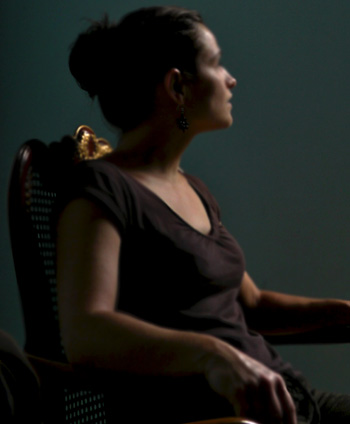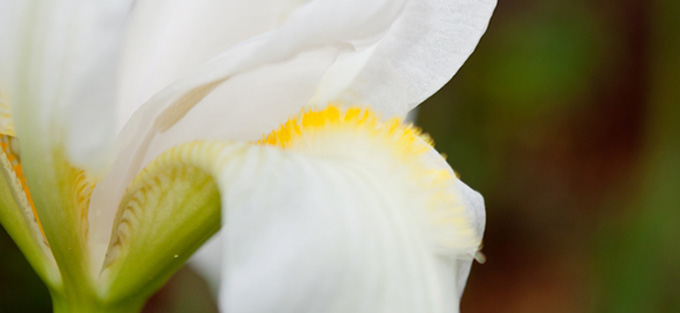by Jenna Pulkowski
The culture teaches us that we should avoid death for as long as possible. We are bombarded with the latest health information about what we need to do to lose weight, look younger, and live longer. Our society has an intense fear of death. Sometimes I marvel that we even have funeral homes and cemeteries. They only serve as visual reminders to us that people die … that we will die, right? Yet, funerals and cemeteries and memorials in honor of a deceased loved one continue to play an important role in our lives.
Death and dying
The chaplaincy portion of my internship takes place at St. John’s Lutheran Ministries in Billings, Mont. St. John’s is a nursing facility that provides health care and nurturing environments for its residents. Staff and volunteers work tirelessly to create a supportive and positive environment–so even though there is death, there also is an atmosphere of life, joy, and hope throughout the campus.
Life? Joy? Hope? How can any of these be present when we constantly deal with dying and death? Caring for these residents as they live out their lives has been an honor. There is one event that sticks in my mind that clearly illustrates just what an honor it has been.
 A couple months ago while I was on call, a family member asked if I would be able to come and sit with her aunt while she—the niece—went home to take care of a few things. While the aunt had a small family, those who lived nearby loved her deeply and didn’t want her to be alone. So, I made my way back to the campus.
A couple months ago while I was on call, a family member asked if I would be able to come and sit with her aunt while she—the niece—went home to take care of a few things. While the aunt had a small family, those who lived nearby loved her deeply and didn’t want her to be alone. So, I made my way back to the campus.
The campus that night was peacefully quiet and mostly empty. Only the overnight staff were around. As I entered the care cottage where this resident lived, an overwhelming feeling of thanksgiving filled me. What a precious opportunity this was. The niece had never met me, had no idea who this chaplain was that would be sitting with her aunt, and yet she trusted me to be a caring presence.
I had never before met the resident I came to sit with; she lived in a different part of the campus than where I worked. I know many people for whom this would have been a uncomfortable, possibly scary, situation, but for me it felt right. Peaceful. Joyous. This small, white-haired, old woman was comfortably curled up in her bed. Her slow breathing calmed me as I settled into a chair, and even though I knew that in all likelihood I would receive a call in the middle of the night that she had died, I wasn’t sad that she was dying.
Belonging to the resurrection
Everything that I know about God’s love and grace has helped me to see death in an old age as a beautiful experience. The way our bodies have been designed to shut down and die is as miraculous and awe-inspiring as the way we were formed and born. Death is where our baptismal promises are completed, because in baptism we are joined to Christ through his death and resurrection. When we die, we belong to the resurrection.
For all of us who have lost loved ones–most especially when the deaths weren’t because of old age–we hold onto these baptismal promises. We know they aren’t a magic potion to make us feel better about death, but the hope our very lives is built upon.
When Paul writes to the church in Corinth, “Listen, I will tell you a mystery! We will not die, but we will all be changed, in a moment, in the twinkling of an eye, at the last trumpet. For the trumpet will sound, and the dead will be raised imperishable, and we will be changed. …‘Death has been swallowed up in victory’” (1 Corinthians 15:51-54).
Lent offered us a place to rest from our society’s fear of growing old and dying, a time to remember that it is from dust we have come and to dust we will return. God offers us the way to eternal life, freed from the fear of death.
Jenna Pulkowski is serving as an intern at Atonement Lutheran Church and St. John’s Lutheran Ministries in Billings, Mont. She attended seminary at Lutheran School of Theology at Chicago. A few of her favorite things include playing with dogs, knitting, chatting with the youth at church or the residents at St. John’s, and consuming copious amounts of coffee—not necessarily in that order. She’s still unsure of what she wants to be when she grows up, but for now she loves the ministry she’s able to do as she works towards being an ordained pastor.
Discussion questions
1. What is your earliest memory of death or dying? How did it impact your feelings about death as you grew up?
2. How does faith and the religious tradition as a Lutheran inform your beliefs on dying and death?
3. In what ways are do you share the joy of Christ’s resurrection with others?


I know that my Redeemer lives! My husband died in 2008. Until the Lord calls me I will try to continue to serve Him. I feel very close to Him. He directs me in big and little ways!
Thank you for a beautiful description of the tranquillity that can be present at the moment of death and during the dying process. And a shout out to Ruth Kelling–I know you have served the Lord mightily over the years! The joy of the Resurrection to us all.